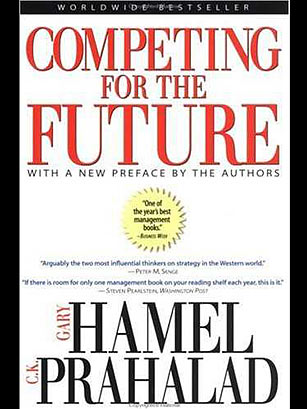
Stating that their book "provides would-be revolutionaries with the tools and concepts they need to challenge the protectors of the past," Hamel and Prahalad argued for a much broader conception of business strategy — a redefinition that has since solidified into a received truth. They show that strategic planning must happen all the time, not just during discreet breaks from a company's regular business; that it must be emotional, meaningful, and purpose-driven, not just analytical; and that this impulse must be nurtured throughout an organization, not just among strategists and consultants. Among the key teachings is that executives need to actively nurture their company's "core competencies" to anticipate — and not merely adapt to — industry changes.